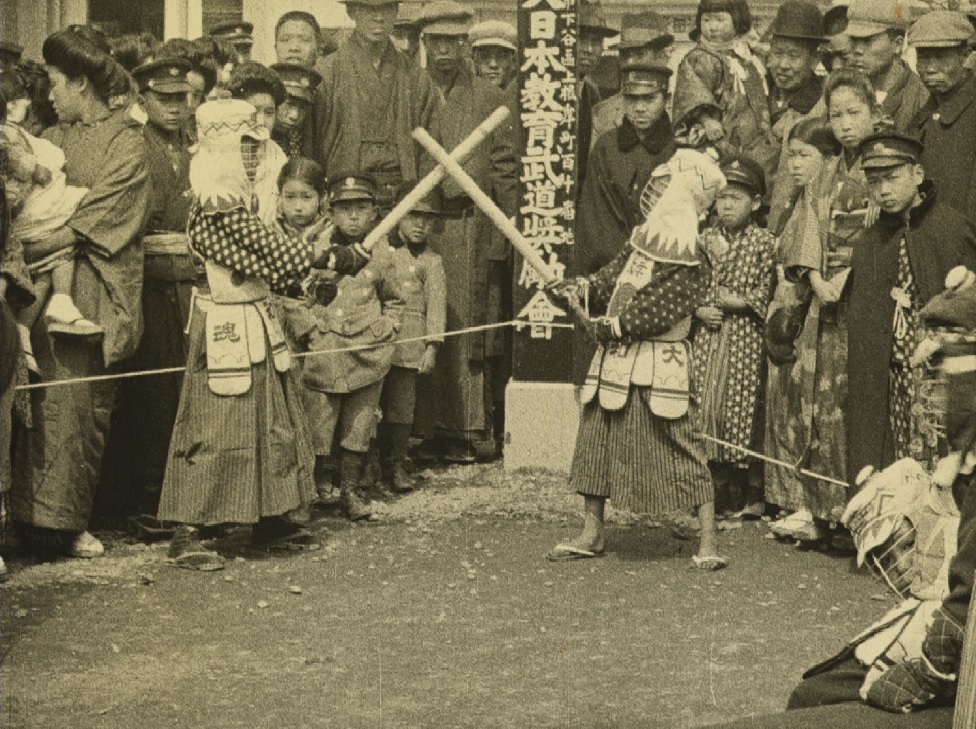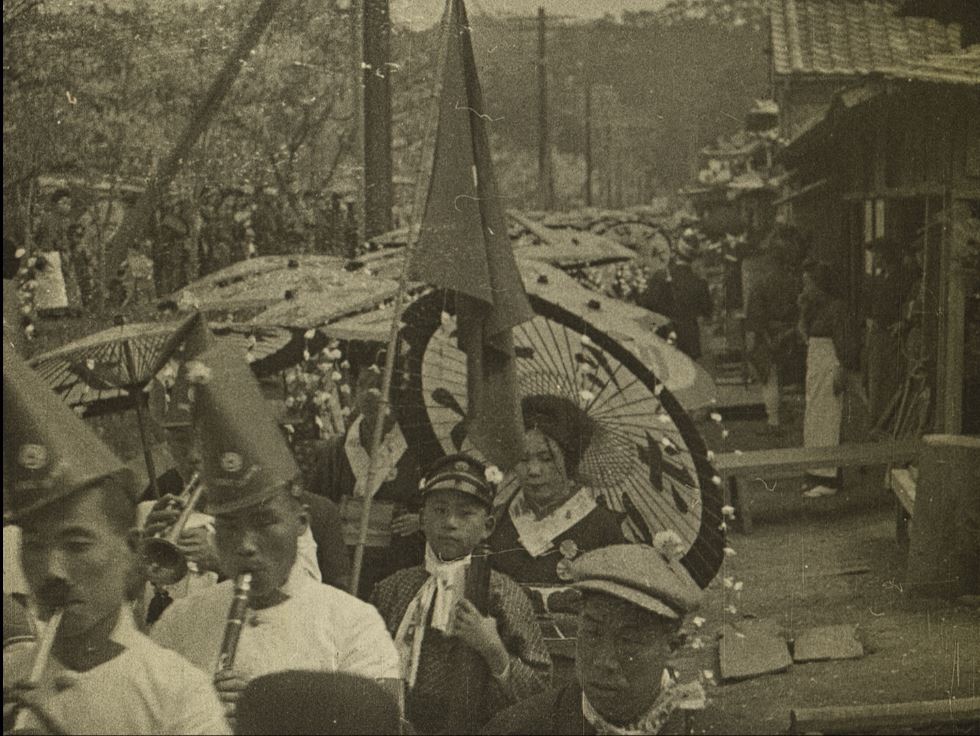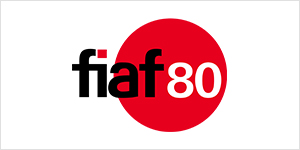Restoration Asia VI, hosted once again by the Focus on Asia Fukuoka International Film festival, was kindly supported by Japan Foundation-Asia Center with the support and endorsement of FIAF.
The symposium begin with the international premiere screening of the restored 1976 Philippine classic Nunal sa Tubig [Speck in the Water] directed by Ishmael Bernal.
Described by Manunuri ng Pelikulang Pilipino (MPP) – the Philippine Society of Respected Film Critics – as ‘Employing a quiet, experimental cinematic style, Ishmael Bernal’s opus recreates the quality and slow pace of life in a dying village surrounded by the sea, as it is caught in the eternal cycle of love and hate, of fertility and pollution, of birth and death. A bold—and successful— attempt to depart from the usual commercial fare, it cryptically paints a large, bleak canvas showing rural fold and how their chances at redemption and happiness are irreversibly decimated by poverty, ignorance, neglect and the dark side of big business.’
The Japanese-language subtitled 35mm print, the sole element used for the restoration, was from the collection of the Fukuoka City Public Library Film Archive. This print has been in the Fukuoka collection since 2002 along when it was acquired along with prints of four other Philippines’ films from Japan Foundation. The print was screened in 2003 as part of the Archive’s ‘Philippine Film Festival” held that year. That festival featured 12 works as well as including a keynote lecture by renowned Philippines’ screenwriter and director Clodualdo Del Mundo Jr.
A complete listing in English of the more than 500 Asian films that are held in Fukuoka is available here:
http://toshokan.city.fukuoka.
The 35mm print was prepared and digitally scanned in 4K resolution by Tokyo Ko-on Ltd in 2017; a presentation on this work was made by Nobukazu Suzuki of Tokyo Ko-On in Restoration Asia IV in Fukuoka last year.
After scanning the data was digitally restored in 2K using a 1:1.85 aspect ratio by Kantana Post Production (Thailand) by ABS-CBN, Manila, and successors to Crown Seven Film Productions. Nunal sa Tubig was screened with both Japanese and English subtitles.
The domestic première of the restoration took place in August, 2018 with the international première being this screening in Fukuoka at FIFF 2018.
The screening was followed by a discussion on the restoration of Nunal sa Tubig and film restoration challenges in Asia where so much content is not even within the continent, let alone the country of origin.
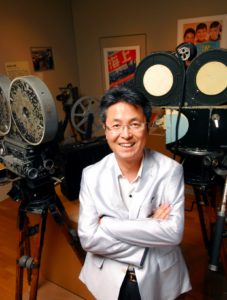
It was chaired by Hisashi Okajima, who became the founding Director of National Film Archive of Japan following it becoming an autonomous body in April, 2018.
Hisashi served as the 12th President of the International Federation of Film Archives (FIAF) between 2009 and 2011. In 2010 he was awarded a Fellowship by the Southeast Asia-Pacific Audio Visual Archive Association (SEAPAVAA) for his pre-eminent role in raising awareness and advocacy of film archiving both in Asia and around the world. He was further honoured with the Jean Mitry Award in 2016 for making a significant contribution to film preservation and the appreciation of cinema.
The panellists were:

Liza Diño is the Chairperson of the Film Development Council of the Philippines (FDCP). She is a film, TV, and stage actress who appeared in numerous films for both independent and commercial studios. Her most notable performances in the independent movies, In Nomine Matris and Toto, earned her a Best Actress and Best Supporting Actress nominations, as well as the Best Actress awards in International Film Festivals. Diño graduated with BA Speech Communication from the University of the Philippines, Diliman (UP) where she ventured in stage acting.
Since becoming Chair and CEO in August 2016, FDCP has become the lead agency in empowering all Filipino filmmakers – from young to regional to established ones – to continue with the production of quality films that can cross over from local to international distribution. It has also been more relevant in its support of Filipino delegates participating in international film festivals and markets. FDCP is the parent body of the Philippine Film Archive established in 2012, a division that Liza takes a very active interest in the day-to-day oversight of.
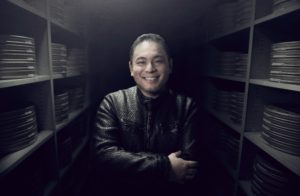
Leo Katigbak, Head of Film Restoration and Archives, ABS-CBN Corporation, Manila
In 1994, Leo set-up the ABS-CBN Film Archives and concurrently worked in ABS-CBN Acquisitions prior to his assignment in STUDIO 23 as Head of Programming / Acquisitions, and subsequently, Head of Studio 23, a post he held till 2008 before going back to ABS-CBN. From 2008-2015, he headed the Content Management Group & Film Archives as well as Special Projects under the Office of the President of ABS-CBN.
Today, he heads the ABS-CBN’s Film Restoration efforts/SAGIP PELIKULA Campaign using his knowledge and passion to not only save classic films from complete deterioration & destruction but to preserve it for the study and appreciation of future generations.
Leo’s presentation on the restoration detailed the process of the restoration and how it included service providers in India, Japan, the Philippines and Thailand. A video which includes scenes before and after restoration is available here: Nunal sa Tubig Before and After Restoration

© Steve Cook
Adrian Wood, Founder & Coordinator, Restoration Asia, Fukuoka
During the discussion Adrian introduced a short Norwegian film that was shown with kind support of the National Library of Norway.
The film comes from the Hans Berge Collection held by the National Library comprising of more than 600 surviving titles; only this and one other feature Japan.
Berge, born in 1877 and who died in 1934 was a Norwegian film pioneer who began to make films around 1905. Previously he had been a still photographer but became fascinated by the new media and abandoned his still camera.
Berge made actuality films, mainly in Norway but also in America where he travelled to frequently after representing Norway at the Pan Pacific Exhibition in San Francisco in 1915. On his journeys Berge also acquired foreign, mainly actuality, films from all over the world. It is most likely, but not known for sure, that this film was purchased in Japan rather than being shot by Berge. These were distributed by his film company Fram-Film after the inclusion of Norwegian-language titles.
